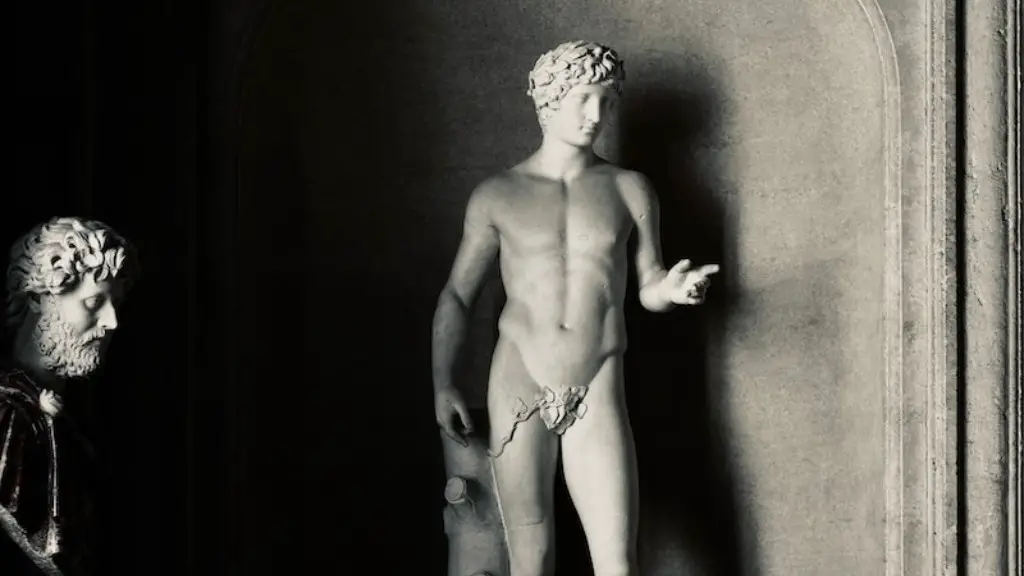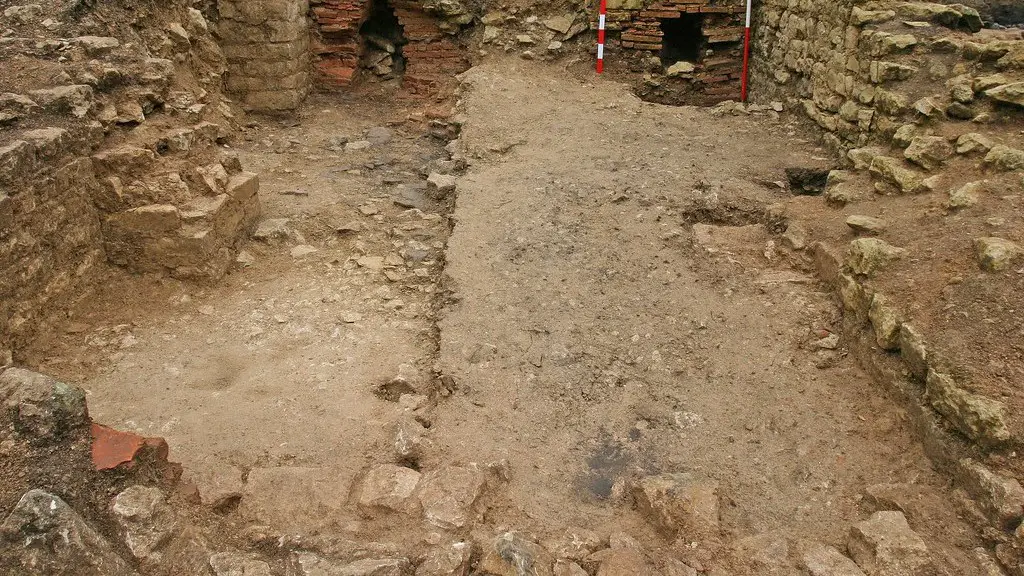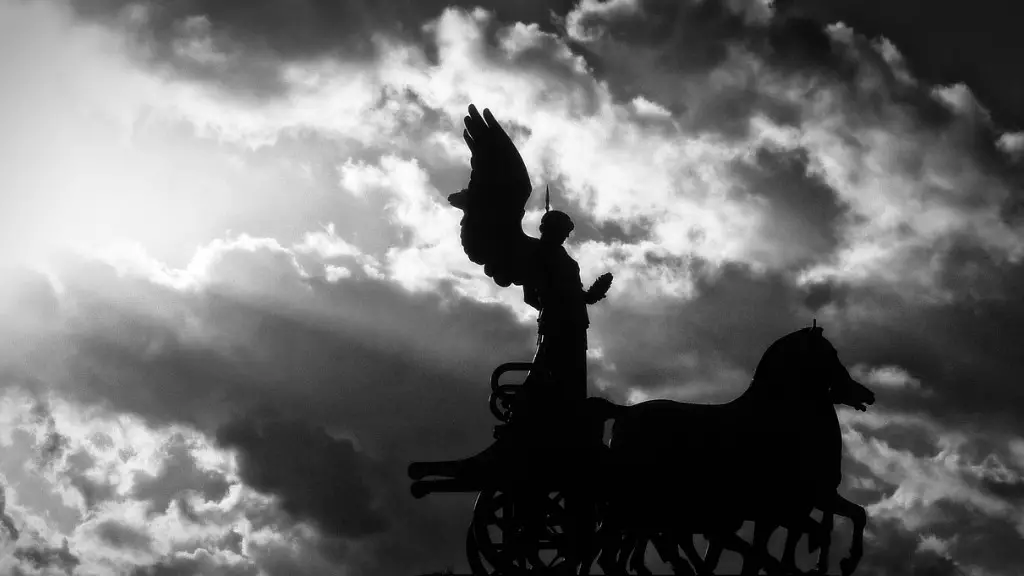Ancient Rome has a long and troubled history with slavery and as a result there were millions of slaves present in Roman society during antiquity. Slavery in Rome was an accepted way of life and it was commonplace to find slaves in households, workshops, fields, and even public places.
Though many slaves were brought from outside the Roman Empire, a significant number of slaves were native-born. Most slaves were the property of the state or of individuals, and for the most part, slaves did not have any legal rights; they could not speak in court or make any legal decisions. In Roman society, slaves were seen as being property, so they did not have any rights or protection from abuse or mistreatment.
The lives of slaves in ancient Rome was miserable, to say the least. Roman masters had absolute control over their slaves and most often treated them poorly. Slaves were forced to work long hours without pay and in some cases, without food or proper clothing. Slaves were also subjected to beatings, torture, and even death if they disobeyed their masters. Slaves were also not allowed to marry or have children, although there were some slaves who were able to overcome these restrictions.
Slaves in ancient Rome also had to suffer the humiliation and degradation of discrimination, based on their slave status. They were not allowed to participate in public events such as gladiator games or theatre performances, and were excluded from the ceremonies of many significant religious festivals.
However, some slaves in Rome were able to purchase their freedom and were eventually freed. There were also a few cases in which a Roman aristocrat could free their slaves as a form of reward or kindness. Slaves that were freed often received training in a trade, in which they could then use to make a living as a freed person.
Although the lives of slaves in ancient Rome were oftentimes difficult, it is important to understand that there was also a system of rights and protections that did exist. Slaves who committed crimes were still tried and judged in court, and there were also laws in place that prevented masters from mistreating their slaves.
Flavius Josephus
Flavius Josephus, a Jewish historian of the 1st century AD, explains the realities of slavery in ancient Rome in his works. Through Josephus’ writings, we get a glimpse into how harsh the lives of slaves were and how common it was for slaves to be mistreated by their masters.
Josephus wrote about the use of torture on slaves, including crucifixion, in his work The Jewish War, and about how the already dire situation for slaves was made even more difficult by their owners. He also wrote about how difficult it was for slaves to escape from their masters and how dangerous it was for them to try.
In addition, Josephus explains the importance of slaves in maintaining and stabilizing Roman society. Slaves played an important role in the economy and in daily life, as they provided necessary labor and services such as farming, construction, and housekeeping.
The Republic of Rome
In The Republic of Rome, Cicero, the famous Roman statesman and orator, provides an in-depth look at the institution of slavery in Rome. He defines slavery as a relationship between a master and his slaves, in which the slaves are essentially the property of the master and are expected to fulfill the wishes of their master without question.
Furthermore, Cicero explains that slavery was not only a part of Roman society, but was actually seen as a positive institution by some Romans. Slaves were viewed as a source of free labor, and as a result, many wealthy Roman households relied heavily on the slave workforce.
Cicero also explains how difficult it was for slaves to gain freedom in Rome. Slaves often had to rely on the kindness of their master to be freed and became dependent on them for basic needs such as food and shelter. This further highlights the power imbalance between slave and master.
In addition, Cicero explains how important it was for slaves to maintain their dignity and strength in order to survive in Rome. Slaves had to remember that although they may have been treated as property and seen as inferior, they still had value to their masters and were often held to high standards.
Historians’ Perspectives on Slavery in Ancient Rome
The issue of slavery in Ancient Rome has been a source of much discussion and debate for centuries. Historians have suggested that the institution of slavery in Rome was a reflection of the existing power dynamics of the time.
They have argued that Roman society was structured in such a way that a small wealthy elite enjoyed a privileged position in the upper echelons of Rome, while an ever-growing number of slaves were forced to live in the lower ranks of society.
Some historians have suggested that the attitudes towards slavery in Rome were often more humane than other societies at the time. For example, it is clear that Roman society was open to voluntary manumission, or the freeing of slaves, and some masters even freed their slaves out of kindness and generosity.
This does not mean, however, that Roman society was free of cruel treatment of slaves. While some masters may have done their best to provide for their slaves, there was a widespread abuse of slaves in the Roman Empire and it was not uncommon for slaves to be mistreated, abused, and even killed.
Legacy of Slavery in Ancient Rome
The legacy of slavery in Ancient Rome has had a lasting impact throughout history. Slavery has been an ongoing issue, and it is still seen in many parts of the world today. However, the legacy of slavery in Ancient Rome can help us understand the importance of human rights and the need to ensure the dignity of all individuals.
It is also important to remember that slavery in Ancient Rome was part of a much broader social system. Slavery was only one aspect of a society that was structured to favor the wealthy and privileged few. This system of inequality has been seen throughout history in a variety of different contexts, and it is important to understand that the legacy of slavery in Ancient Rome can help us understand this system and its effects.
Ethical Implications of Slavery
When looking at the issue of slavery in Ancient Rome, it is important to consider the ethical implications of the practice. Slavery can be seen as an affront to human rights and dignity, and has been the cause of much suffering throughout history. It is important to remember the moral implications of slavery, and the need to ensure the protection and respect of human rights.
At the same time, it is important to understand that slavery was much more than just a moral issue. Slavery in Ancient Rome had an economic, social, and political significance that cannot be ignored. This is why it is important to consider not just the moral implications of slavery, but also the practical implications in terms of economic and political power.
Conclusion
When looking at the issue of slavery in Ancient Rome, it is important to understand complex relationships between the master and the slave, and the economic, social, and political implications of the practice. Slavery was an accepted part of Roman society, and it had a lasting impact on the Roman Empire. Slavery also continues to be an issue throughout the world today, and it is important to remember the ethical and practical implications that the practice has.





